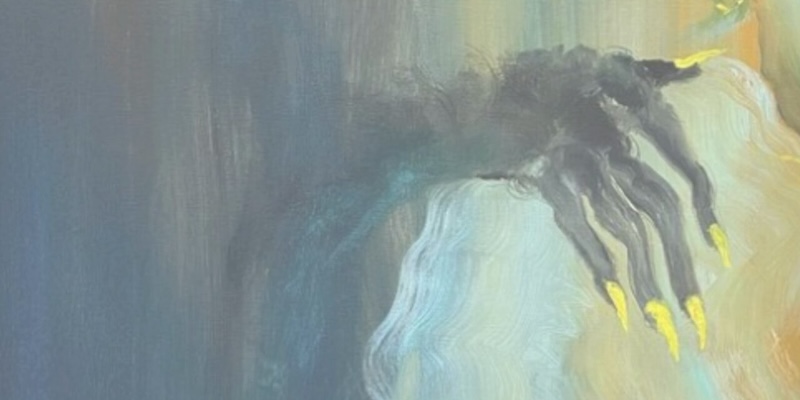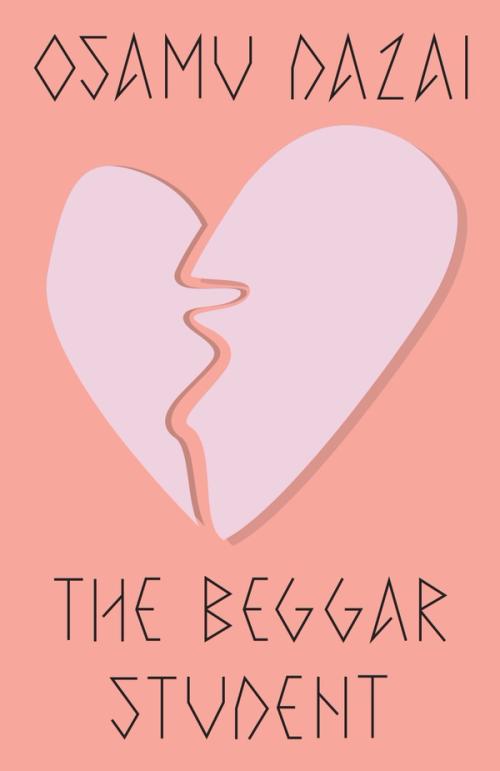
Paul McCartney! Hannah Arendt’s poetry! “Paradise Lost”! 15 new books out today.
As the middle of December approaches, and as the wheel of the year nears the end of its long turn, it’s difficult not to reflect on what this year has meant, and what the year to come will look like. It’s been a year of curious, sometimes chaotic twists and turns, a year pockmarked with sudden surprises and slow astonishments, with moments of normalcy, of course, amidst it all. And in some ways, my list of new books (including one inadvertently left off last week’s roundup) reflects this blend of the expected and the unusual, with fifteen options in fiction, poetry, and nonfiction that span quite a wide range.
You’ll find a new volume of Allan Kozinn and Adrian Sinclair’s much-buzzed-about life of Paul McCartney; an unexpected collection of poems by the celebrated critic Hannah Arendt; a look at how Milton’s Paradise Lost has informed and influenced revolutions across the globe; a formally innovative, genre-expanding collection of essays by Vera Blossom; a collection of polyvocal essays by the poet Brandon Shimoda exploring the complex aftermath and afterlives of Japanese American internment camp survivors and victims; innovative fiction by Karina Sainz Borgo, Lily Tuck, Osamu Dazai, and others; and more.
Although there aren’t as many new books out today as in previous weeks, what we do have is intriguing. Let those book piles grow and grow!
*

Karina Sainz Borgo, No Place to Bury the Dead (trans. Elizabeth Bryer)
(Harpervia)
“[A] rich and lyrical tale of desperation and redemption, set during an outbreak of a plague that causes amnesia…. Throughout, Sainz Borgo applies stark poetry to the terrifying setting, where ‘moans and cries attributed to ghosts sometimes masked executions and beatings.’ It’s a stunner.”
–Publishers Weekly

Lily Tuck, The Rest Is Memory
(Liveright)
“The haunting story of one real-life Polish teenager amplifies the infinite horror of Auschwitz…beautifully interweaves Tuck’s imagined story of Czeslawa’s constrained life before the German occupation and the hideous conditions she faced during her short, brutal months at Auschwitz. Extensively annotated and researched, Tuck’s brief novel returns, time and time again, to the subject of memories….A painful, essential, unflinching memento.”
–Kirkus Reviews

Augusto Monterroso, Dustin Illingworth (introduction) The Rest Is Silence (trans. Aaron Kerner)
(NYRB)
“Monterroso, who died in 2003, fashions his anti-novel into a sly parody of both the gentleman of letters archetype and a backwater literary scene during the Latin American Boom. Readers will relish this tragic farce.”
–Publishers Weekly

Orlando Reade, What in Me Is Dark: The Revolutionary Afterlife of Paradise Lost
(Astra House)
“Wonderfully written, intelligent and moving. Orlando Reade follows the enduring conversation between Milton’s Paradise Lost and revolutionaries across the centuries. Reade reminds us that literature is action, that epic poetry has the power to liberate minds, pens, and voices. Behind every revolution is a song. As it turns out, so often that song has been Paradise Lost.”
–Leah Redmond Chang

Brandon Shimoda, The Afterlife Is Letting Go
(City Lights Books)
“Poet and essayist Brandon Shimoda reconstructs an ever-shifting narration, an unforgettable constellation of voices of the Japanese American incarceration survivors and their children, grandchildren, great grandchildren, including his own. Like the ‘hinotama: balls of light’ witnessed by the incarcerated The Afterlife is Letting Go also sparks of grief—it’s a mourning star, orbiting our collective consciousness of night.”
–Don Mee Choi

Noam Chomsky, C. J. Polychroniou (interviewer), A Livable Future Is Possible: Confronting the Threats to Our Survival
(Haymarket)
“Chomsky is a global phenomenon…he may be the most widely read American voice on foreign policy on the planet.”
–The New York Times Book Review

Hannah Arendt, What Remains: The Collected Poems of Hannah Arendt (trans. Samanatha Rose Hill and Genese Grill)
(Liveright)
“Hannah Arendt’s poems bear out her belief that poetry itself is a kind of thinking. Aphoristic, intuitive, and often surprising in their immediacy, they will interest every reader of her major work. ‘Poetic language, ‘ she wrote, ‘is a place, not a refuge.’ These poems—finely translated and with conscientious notes by Samantha Rose Hill—allow us to enter a place that resembles no other.”
–David Bromwich

Osamu Dazai, The Beggar Student (trans. Sam Bett)
(New Directions)
“Dazai was an aristocratic tramp, a self-described delinquent, yet he wrote with the forbearance of a fasting scribe.”
–Patti Smith

Kate Macintosh, The Champagne Letters
(Gallery Books)
“Filled with wit and wisdom in equal measure, The Champagne Letters is an utter delight! This book reminds us about the extraordinary things that can happen when we take charge of our own lives—ideally with a glass of champagne close at hand.”
–Julia Kelly

Vera Blossom, How to Fuck Like a Girl
(Dopamine/Semiotext[e])
“Electric, riveting, witty, and alive.”
–Tanaïs

Eliot Stein, Custodians of Wonder: Ancient Customs, Profound Traditions, and the Last People Keeping Them Alive
(St. Martin’s Press)
“Part travel, part anthropology, part memoir, part history, each chapter reveals a cultural treasure or custom that’s about to disappear. From a Mali musical instrument, a sacred Sardinian pasta, artisan Japanese soy sauce, a secret mirror, to beekeeping and the survival of medieval night watching on the tip of Sweden, Eliot Stein’s quests not only explore each subject in depth but open wide the aperture onto the cultural context. I was enthralled by every chapter.”
–Frances Mayes

Allan Kozinn, Adrian Sinclair, The McCartney Legacy: Volume 2: 1974-80
(Dey Street Books)
“Music critics Kozinn and Sinclair follow up The McCartney Legacy, Vol. 1 with another kaleidoscopic account of the musician’s post-Beatles career. Drawing on meticulous research, the authors highlight the challenges McCartney faced after forming Wings in 1971….McCartney fans couldn’t ask for a more comprehensive and colorful treatment of this period in his life.”
–Publishers Weekly

Frank Durham, Thomas P. Oates, Forming the Public: A Critical History of Journalism in the United States
(University of Illinois Press)
“Forming the Public is an important addition to the literature of journalism history. Durham and Oates provide an insightful and inclusive understanding of key elements of journalism history and offer valuable context for significant struggles in the development of journalism in the United States.”
–Bonnie Brennen

Matthew Gabriele, David M. Perry, Oathbreakers: The War of Brothers that Shattered an Empire and Made Medieval Europe
(Harper)
“Through subtle readings…Gabriele and Perry dispel the romantic aura of the Carolingian era, depicting it as an entertaining but gruesome medieval picaresque of power-hungry plots, murders, and—stomach-churningly—blindings. The authors also shrewdly explore the Franks’ genuine belief in the sacredness of kingship—and especially of royal oaths—that kept such a violent system in motion. The result is an enlightening portrait of the medieval mindset.”
–Publishers Weekly

Vijay Kolinjivadi, Aaron Vansintjan, The Sustainability Class: How to Take Back Our Future from Lifestyle Environmentalists
(New Press)
“The struggle to transform society and the economy away from our addiction to fossil fuels, is, as these authors argue cogently, a constant class struggle against wealth and power. They remind us that in that struggle we have the power to say no and the power to say yes; the power to fight and build. Essential reading for the world’s transformers.”
–Ann Pettifor
Gabrielle Bellot
Gabrielle Bellot is a staff writer for Literary Hub. Her work has appeared in The New York Times, The Atlantic, The New York Review of Books, The New Yorker, The Paris Review Daily, The Cut, Tin House, The Guardian, Guernica, The Normal School, The Poetry Foundation, Lambda Literary, and many other places. She is working on her first collection of essays and a novel.



















